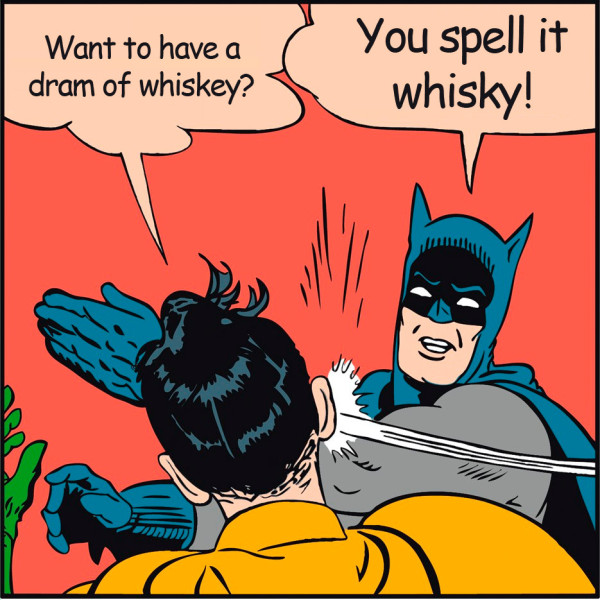Should I write "whisky" or "whiskey"? And besides, is there a real difference between whisky and whiskey? That is the question…
...and the answer is not that simple. In fact, the word "whisky" is derived from the Scottish Gaelic uisge or Irish Gaelic uisce. By the way, it’s interesting to note that spelling differences already existed in Gaelic and that they still persist nowadays...
To understand the genesis of this syntactic bifurcation, a flashback is required. Thus, historically the term "whisky" was used but, in the 19th century, the production of Scotch whisky was of a rather low quality, much of it being poorly distilled in Coffey stills (still used today but for grain whiskies). Around 1870, Irish distillers, to differentiate their product from the Scottish one for the US exportation, decided to add an “e” in the name of their production, which gave rise to the "whiskey" 1.
The distinction was made and it hasn’t changed through time, therefore the word whiskey is now mainly used in the United States and Ireland while other countries, starting by Scotland and Japan (but also Canada or Sweden), rather uses the word whisky. By the way, since this is the main subject of this blog, whisky, or ウイスキー, is pronounced [uisuki] by Japanese...
A difference that was mainly cultural at the beginning, now allows people to distinguish the origin of the whisk(e)y and, to make long story short, the situation is the following:
- Whiskey now refers to Irish and American productions (such as Bourbon, Rye, Tennessee whiskey, ...)
- Whisky refers to all Scottish productions (scotch) and those that are inspired by or refer to it directly, including Japanese whisky ...
Oh, and word of advice: avoid using the word "whiskey" when referring to Scotch whisky (or Japanese whisky), or it could happen to you the same thing as Robin is the above illustration…
References: 1 Master of Malt



